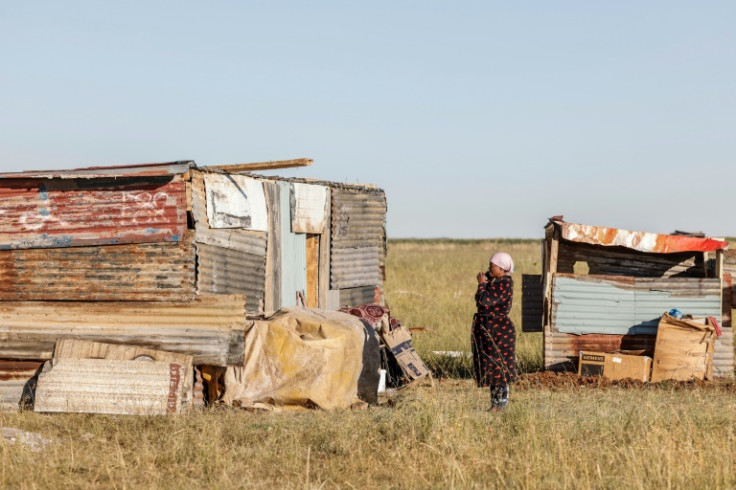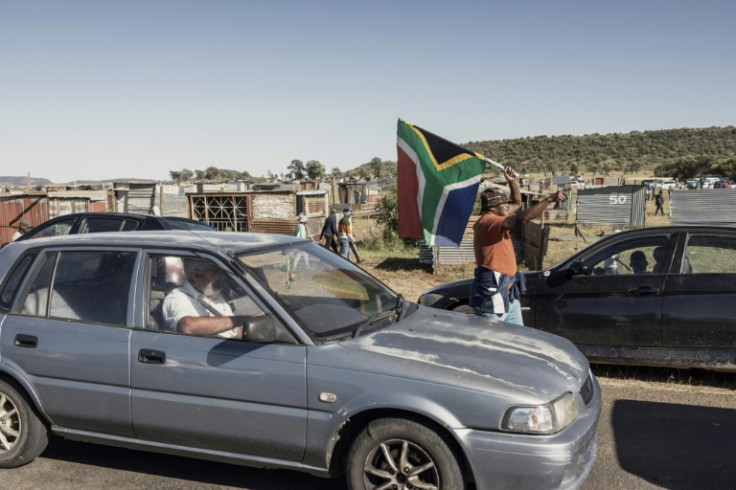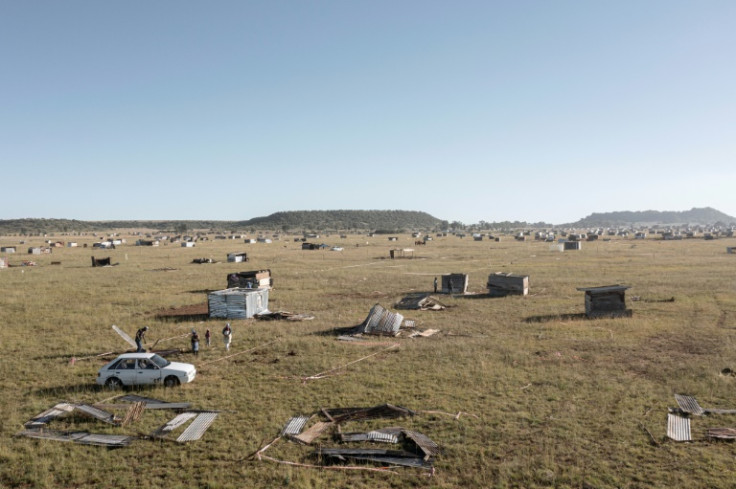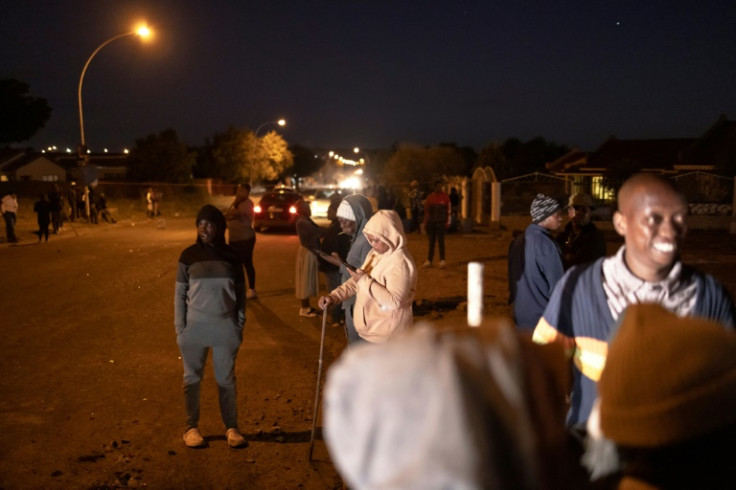Land Grab Underlines Housing Crisis Ahead Of South Africa Poll

A violent stand-off between local residents and squatters that invaded a field outside Bloemfontein starkly underlines the politics behind South Africa's housing crisis ahead of May's cliff-edge general election.
On the north side of Curie Avenue new arrivals are setting up a sprawling shanty town of corrugated iron shacks stretching almost four kilometres from the city limit to the farmlands beyond.
On the south side of the road, the residents of Lourierpark, an established community of small privately-owned bungalows, have launched protests against the interlopers and clashed with police trying to keep the sides apart.
When AFP arrived at the scene on Tuesday, a barricade of burnt tyres separated police equipped with armoured personnel carriers and residents armed with wooden stakes. Tear gas hung in the air.
A recent court ruling ordered the municipality to stop new shacks being erected on the invaded land, but on Wednesday morning building was continuing and more than 2,000 people had descended on the field to queue to register their interest in plots to build their own homes.
Thirty years after the end of apartheid, land ownership and housing policy are still hotly disputed issues in South African politics and the anger boiling over in Lourierpark will be reflected nationwide on May 29 when the nation goes to the polls.
For established residents like 38-year-old Tshegofatso Tshabalala, the issue is clear. She and her neighbours took out loans to buy their homes. They pay taxes and water bills, while the land-grabbing newcomers bring only crime and insecurity.
"We're working families," she says of Lourierpark, under the blue glare of flashing police lights. "Look at what I'm wearing," she says, indicating her sports shorts, "I'm ready to run if they come."
Members of the self-appointed night patrol, some of whom were later arrested, manned the barricade. They alleged that squatters have sexually harassed local girls, hijacked electricity for streetlights and broken water pipes.
They also complained that local property prices would fall, unlike their interest payments.
The community also suspects a political motive. Lourierpark is part of a council ward represented by the opposition Democratic Alliance (DA), and they accuse the ruling ANC of flooding the district with its supporters under the guise of rehousing them.
Those seeking a new start in the shacks don't see it that way.
Felicia Legetla, a 31-year-old student, is several months pregnant and desperately wants to move out of her grandmother's house. "I have a baby coming. It's a great hope if it works out," she told AFP on Wednesday.
She hoped the city authorises new homes, but said she was not a ruling party stooge -- she too was critical of the decisions that led to the crisis.
"They were given a budget to help with informal settlement. The money was returned. They should've made a plan last year," she said, recalling that South Africa's central government recovered the grants that provincial authorities failed to assign to housing schemes.
Both the residents and the would-be residents on either side of the standoff are black but there is nevertheless a racial undertone to the dispute.
As the shantytown expands it will encroach on white-owned farmland. Lourierpark is part of a ward represented by the DA's Dave McKay, a white South African.
One young woman, who wouldn't give her name, said squatters had accused the homeowners of betraying the anti-Apartheid struggle by siding with the "white" DA, a charge they reject.
On the occupied land, hundreds of home-seekers queued under the hot sun with their identity documents to sign a list organised by SANCO, a civil society umbrella organisation that is independent of government but usually identified with the ANC's broader movement.
SANCO's representative Teboho Thabane, said his group would present the names to the municipality to prevent a free-for-all land grab.
In an interview with SABC public television, the ANC mayor Gregory Nthatisi, said reversing the seizure of the field would not be easy, whatever the court order.
"We are dealing with people that are coming from a very difficult situation," he said.
With housing crises frustrating voters alongside economic stagnation and rolling blackouts, this year's election could see the ruling ANC falling under a 50 percent vote share for the first time since democratic rule began.
One of the parties hoping to capitalise on the ANC's weakness is the liberal DA.
The party was out in force in Lourierpark on Wednesday, with its local representatives recording social media messages in the three main languages in the area: English, Sotho and Afrikaans.
"You can't have people just grabbing land," said DA provincial chief Roy Jankielsohn, accusing the mayor of failing to implement the court order and evict the squatters, but predicting it would do the ANC no good after the election.
"The minute that people have put up the informal dwellings they're going to demand water and electricity, which the municipality can't supply, and then they are going to be the ones burning these tyres next."



© Copyright AFP 2024. All rights reserved.











